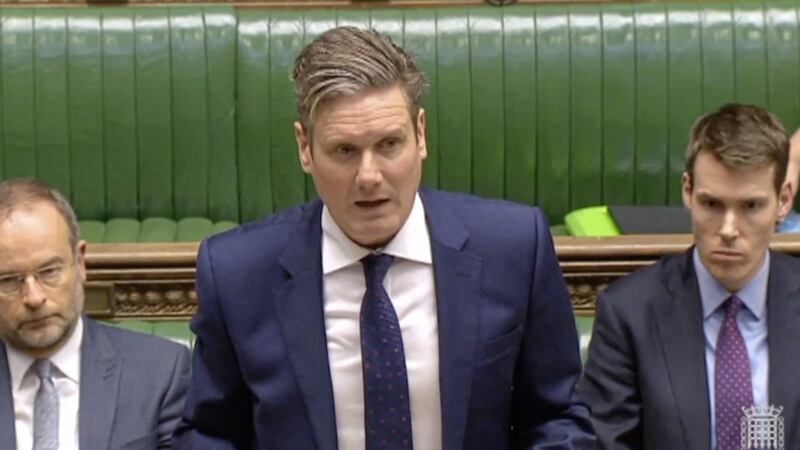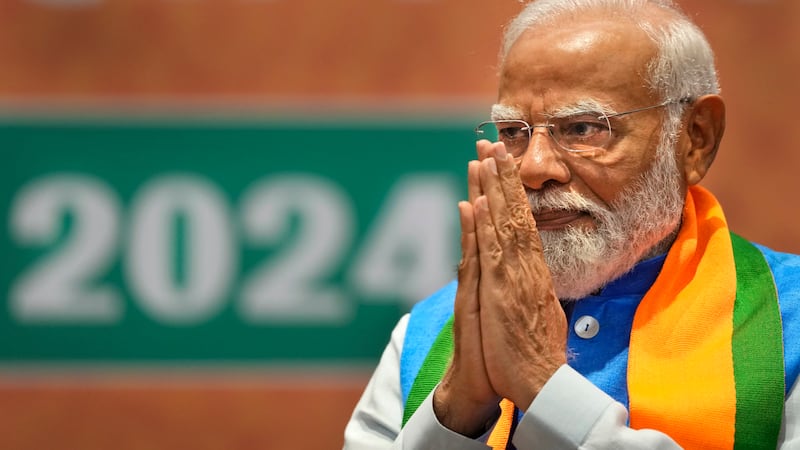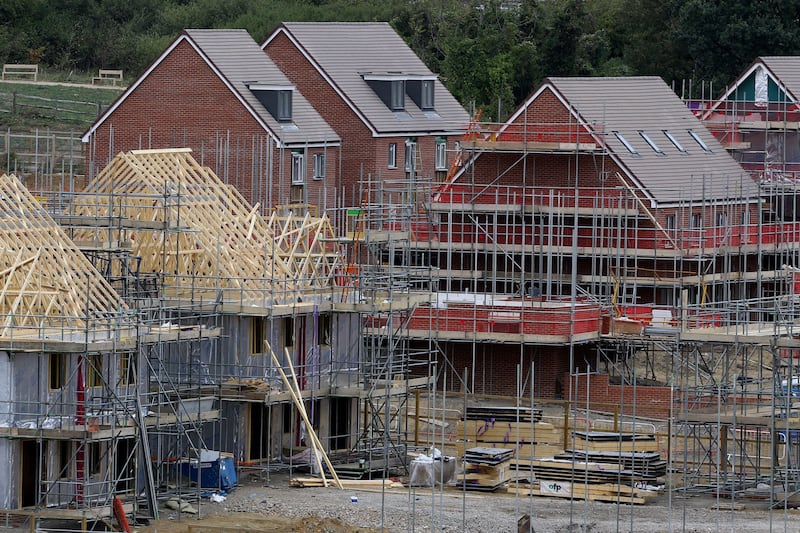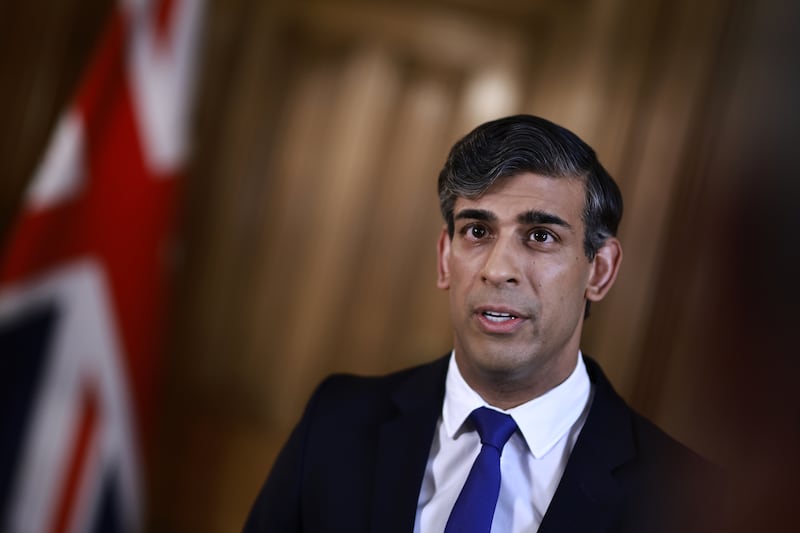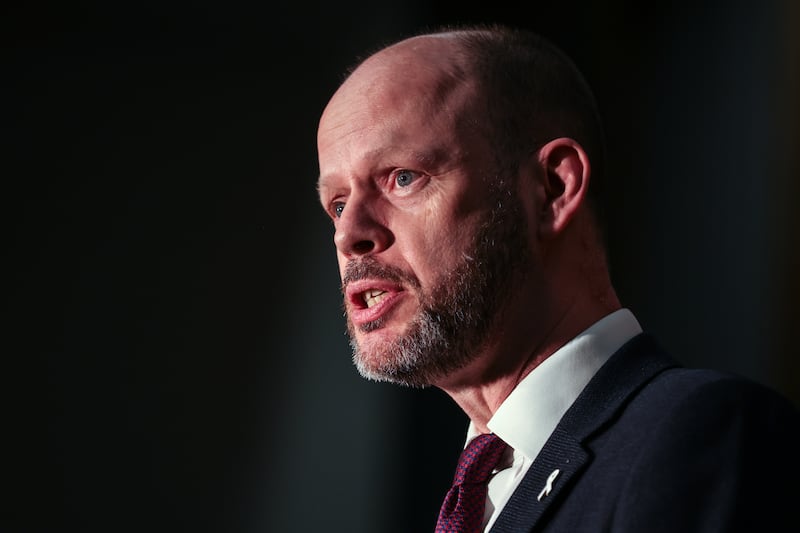MPs have overwhelmingly backed Theresa May's plans to trigger the process for quitting the European Union by the end of March next year on condition the British prime minister reveals her strategy.
Mrs May took the wind out of a potential Tory rebellion in the symbolic Commons vote after conceding on Tuesday to set out the direction Brexit negotiations will take and explicitly challenged members of all parties to support the timetable for activating Article 50.
Tory Europhile Ken Clarke and Labour's Ben Bradshaw, David Lammy and Chris Leslie opposed the first vote – a technical move adding a government amendment to the original Labour motion calling on the PM to set out the exit strategy. The non-binding motion was approved by 461 votes to 89.
MPs then backed the changed motion calling on the government to publish its Brexit plan and to trigger Article 50 before March 31, by 448 votes to 75.
Mr Clarke opposed that motion, joining a group that included nine Labour MPs, 51 SNP MPs, and five Liberal Democrats.
Brexit secretary David Davis had promised MPs that the government will set out its "strategic plans" before launching the formal mechanism for withdrawal from the EU, but said it will not reveal anything which might "jeopardise our negotiating position".
Former chancellor Mr Clarke said Mrs May's promise to reveal her plan was "extremely vague", and called for it to be set out in detail in a White Paper for publication before the invocation of Article 50.
Conservative Remain campaigner Anna Soubry said she was supporting the proposals but admitted "I am nervous and I am concerned" over the lack of debate in parliament on the departure plans.
Mr Bradshaw, a Labour former cabinet minister, said he was not backing the government timetable because "it in effect gives a blank cheque for us to invoke Article 50 by March without any of us being any the wiser about the government's intentions today".
But Mr Davis, responding to an opposition day motion in the Commons calling on the government to reveal its plans, insisted ministers must retain "room for manoeuvre" to respond with "a high degree of agility and speed".
Shadow Brexit secretary Sir Keir Starmer insisted the plan must set out whether the government intends to keep Britain in the European single market or customs union, or to seek a transitional arrangement to cover the period immediately after Brexit.
"There is no mandate for hard Brexit," he said.
"There is no consensus for hard Brexit."
Mrs May's last minute decision to promise a plan amounted to the government "caving in" at the prospect of defeat, Sir Keir added.
THe prime minister took the step on Tuesday evening amid reports of a planned revolt by as many as 40 Tory backbenchers.
Tory former cabinet minister Iain Duncan Smith said the vote was an "historic moment" and had called Labour's bluff.
"They have had their bluff called, I suppose. They have had to vote to give us a date, so that is a real blank cheque for the government.
"That means that no matter what happens now in parliament, Labour is signed up to the principle that by the March 31 next year the government will have been able to invoke Article 50.
Lib Dem leader Tim Farron accused Labour and the Conservatives of "holding hands towards a hard Brexit, refusing to seek the will of the people on the deal".
"I want democracy, not a stitch up," he added.
Sir Keir insisted Labour's hands had not been tied because it will "challenge" the government if the plan is too vague.
He told Sky News: "If the plan the government comes up with is a late, vague plan they can expect further challenge. If they haven't produced a plan by the time we get the legislation, then it will be open to us to put down amendments saying what the pre-requisites of the plan are.
"I don't agree with Iain Duncan Smith on this and many other things."
Meanwhile, the Conservative Party press office used its Twitter account to "name and shame" Labour MPs who voted against the motion.
After each opponent's handle, it added the phrase "won't respect referendum result - Labour are out of touch with ordinary working people #BrexitDebate".
MPs vote 448 to 75 to approve Opposition Motion, as amended, on Government's plan for #Brexit. Full Motion: https://t.co/RRdmlTpgOT
— House of Commons (@HouseofCommons) December 7, 2016
MPs vote 461 to 89 to approve Government Amdt. (a) to Opp. Motion on Government's plan for #Brexit. Full Motion: https://t.co/RRdmlTpgOT pic.twitter.com/zWxKzERNuF
— House of Commons (@HouseofCommons) December 7, 2016
MPs held two votes, with the first in favour of adding the Government amendment to the original Labour motion – by 461 votes to 89, majority 372.
This was opposed by 23 Labour MPs and one Conservative – former chancellor Ken Clarke.
The Labour rebels included Ben Bradshaw, David Lammy and former shadow chancellor Chris Leslie.
The amendment was also opposed by five Liberal Democrat MPs, three Plaid Cymru MPs and 51 SNP MPs.
Meanwhile, some 150 Labour MPs backed the Government’s amendment.
The seven Democratic Unionist Party MPs backed the motion: Gregory Campbell (Londonderry East), Nigel Dodds (Belfast North), Jeffrey Donaldson (Lagan Valley), Ian Paisley (Antrim North), Jim Shannon (Strangford), David Simpson (Upper Bann), Sammy Wilson (Antrim East).
UK Independence Party MP Douglas Carswell (Clacton), the Ulster Unionist Party's Danny Kinahan (Antrim South) and Independent Simon Danczuk (Rochdale) also backed the motion.
